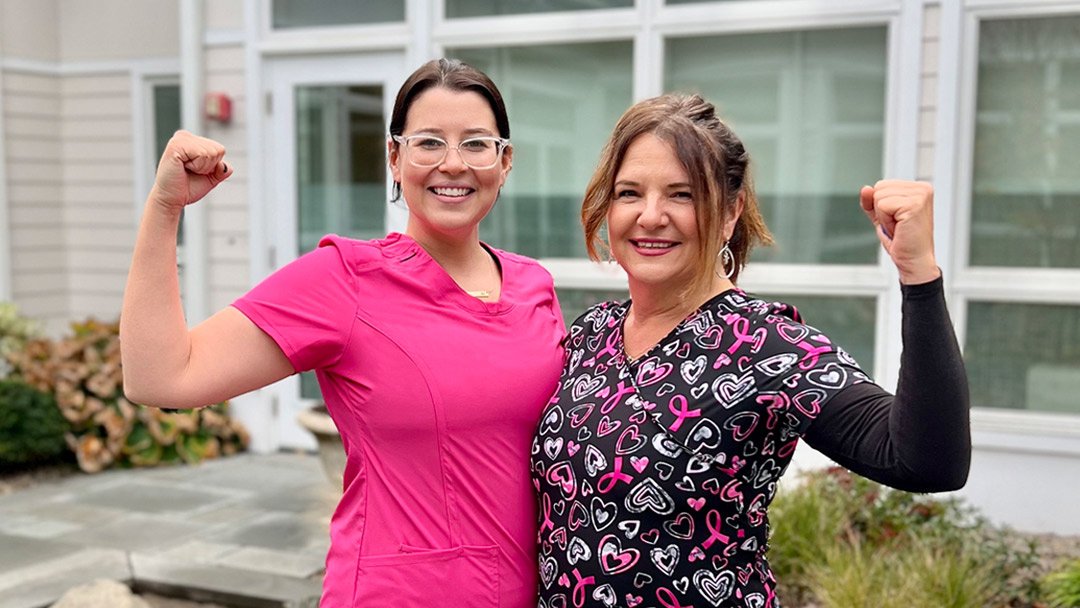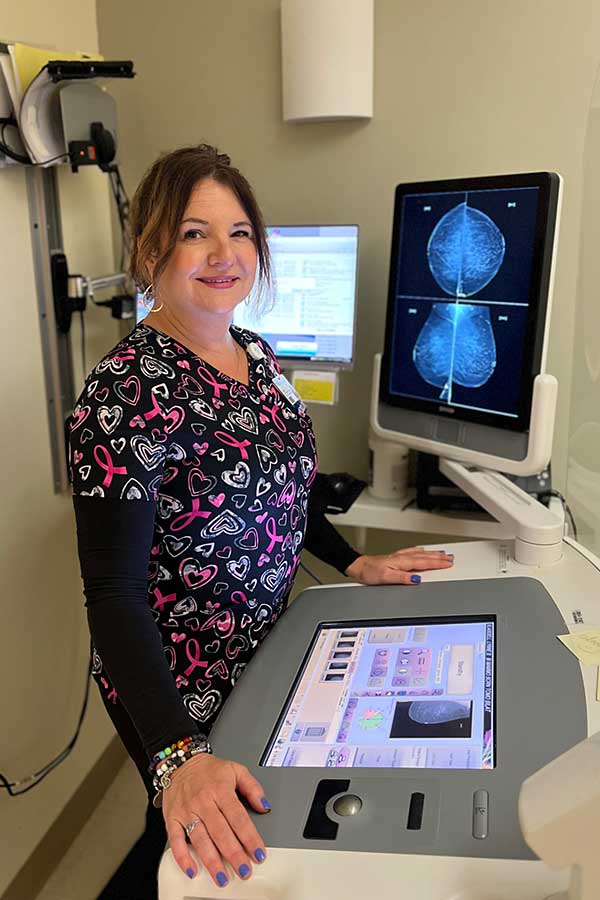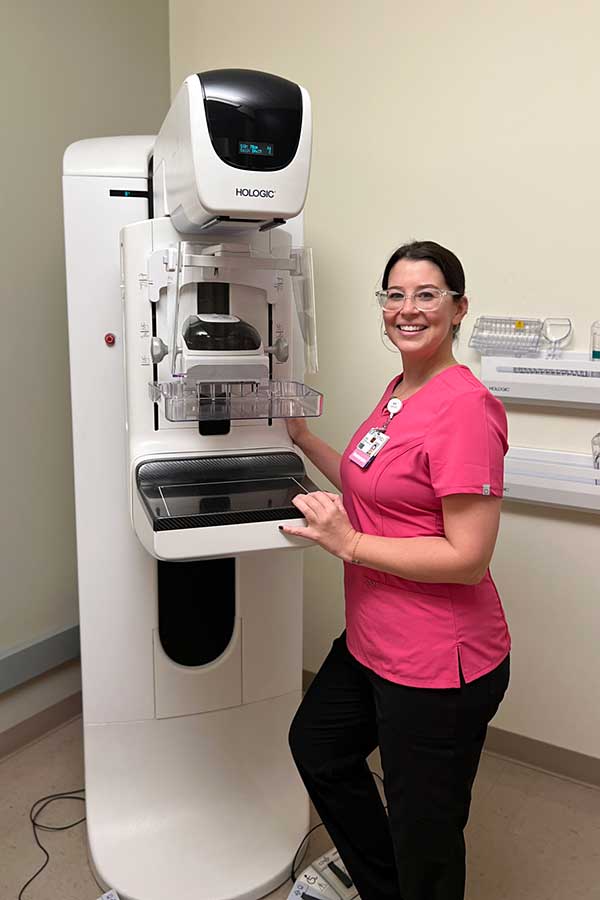The Power of Pink

Meet Tara and Holly: Two women who are passionate about helping patients feel comfortable and confident about their breast health.
For Breast Cancer Awareness Month, we recently sat down with two techs at Cuda Women’s Health Center in Hyannis to learn more about their roles, how they approach each patient and why it’s critical to make time for your annual mammogram.
Holly: Breast cancer survivor views experience as a blessing

Holly Fellows
Since being diagnosed and surviving breast cancer three years ago, Holly Fellows says she is a more compassionate and relatable mammography technologist at Cuda Women’s Health Center.
“I’m unbelievably blessed to have been diagnosed so early by an annual screening mammogram, and now I am able to share my survival story with someone who may be going through a similar diagnosis,” says Holly, who has no family history of breast cancer. “I am more aware of a patient’s anxiety and what they are going through from a personal perspective instead of a clinical one.”
For every patient who walks through the door for a mammogram, Holly says she explains everything from start to finish. “It’s a scary exam,” says Holly, who is registered in three modalities and has licenses in X-ray, bone-density testing and mammography. “Women are baring their breasts and their souls.”
To help them feel at ease, she engages women in small talk about their everyday lives. “By the time we are done, some patients are surprised the mammogram is already finished.”
Holly emphasizes the importance of a calming presence because if the patient is talking or breathing during the exam, the slightest motion can affect image quality. “We are picking up calcifications the size of a grain of sand in mammography,” says Holly. “At the end of the day, it’s on us to produce the best images possible so the radiologist can make an accurate diagnosis.”
Over her 33-year career, she has seen many changes and is most grateful for digital technology. While developing film in a small darkroom, for instance, “there was so much margin for error with images getting scratched and stuck in the processor,” says Holly, “or images being over-processed or under-processed.”
In addition to her role as a mammo and bone-density tech, she also helps out with the Cuda Center’s monthly breast cancer support group because she wants to give back to the community that helped her during a difficult time.
Tara: The power of patient education, hugs and thank-you’s

Tara Waldrop
Twenty minutes is all it takes for Tara Waldrop to help a woman feel confident and comfortable during a mammogram.
The mammographer and X-ray technologist at Cuda Breast Care Center realizes it’s not the most enjoyable exam. “A lot of women feel shy, nervous and scared,” says Tara. “I try to keep it lighthearted in the exam room so they feel comfortable to open up and ask questions. With a better understanding of the process, women are more likely to continue and be consistent with preventive care.”
Working with a team of seven to 10 mammographers at Cuda, Tara says the challenges of the job range from accurately positioning patients’ bodies in the machine to working with women who are unable to stand or even hold their breath for an extended period of time. “It’s nice that we have state-of-the-art equipment here to accommodate the difficulties in getting the correct images we need for diagnostic purposes,” says Tara. “The machines feature curved paddles and 3-D imaging, and technologists today have better control over the compression the patient receives.”
Tara grew up in Brewster and said it was always her dream to work at Cuda. After attending Keiser University in Ft. Lauderdale, where she earned her associate’s degree in radiology, Tara ended up living in South Florida and working as an X-ray tech and mammo technologist at a hospital and outpatient center. Three years ago, she moved back to the Cape to be closer to family—and she was happy to bring her expertise to Cuda.
The mammo tech says she walks the patient through the entire process, letting a woman know when and where she is going to move and position them. “I like making women feel comfortable so they don’t go home thinking they had a bad or painful experience,” says Tara, adding women are fortunate to have this preventive care. “It’s nice when it’s over and they give you a hug and thank you. I want them to have a good experience so they come back every year.”
